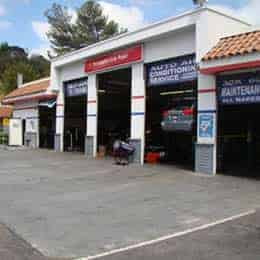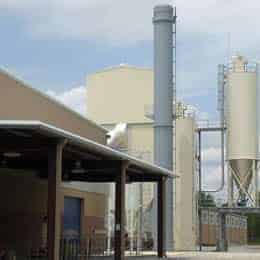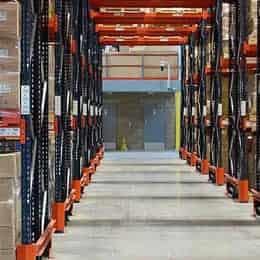Understanding Lawn Care Business Insurance in the US
The lawn care industry in the United States has experienced significant growth due to the increasing attention homeowners and property managers give to landscaping. With this growth comes a need for better business practices, particularly in managing risks through insurance.
Lawn care business insurance is crucial not only for legal compliance but also for the financial stability and reputation of the business. Here, we take a look at the types of insurance necessary for lawn care businesses, why they’re essential, and how they can protect against the inherent risks of the industry.
Types of Insurance for Lawn Care Businesses
General Liability Insurance
General liability insurance is the cornerstone of a lawn care business’s insurance portfolio. It provides coverage for property damage, bodily injury, and legal defense costs that could arise from accidents. For instance, if a mower throws debris that breaks a client’s window or if a client trips over equipment and gets injured, general liability insurance can cover the resultant claims. This coverage not only protects the business financially but also enhances its credibility in the eyes of potential clients.
Commercial Auto Insurance
For lawn care businesses that utilize vehicles for transportation of equipment and personnel, commercial auto insurance is indispensable. This type of insurance covers vehicles against accidents, theft, vandalism, and other damages. Whether you own a single truck or a fleet of vehicles, having this insurance ensures that accidents on the road do not pose a significant financial setback to your operations.
Workers’ Compensation Insurance
Workers’ compensation insurance is mandatory in most US states once a business hires its first employee. This insurance covers medical costs and a portion of lost wages for employees who get injured on the job. For lawn care businesses, where workers are at risk of injuries from equipment, chemicals, or outdoor conditions, this insurance is particularly important. It not only helps in covering costs but also demonstrates to employees that their welfare is a priority, potentially increasing morale and retention.
Equipment and Tools Insurance
Lawn care relies heavily on specialized equipment and tools. Equipment and tools insurance provides coverage for the repair or replacement of these items if they are damaged or stolen.
Given the high cost of lawn care equipment, this insurance can save a business from substantial out-of-pocket expenses, ensuring that operations can continue smoothly after an unexpected event.
Professional Liability Insurance
Also known as errors and omissions insurance, professional liability insurance covers claims of negligence, misrepresentation, or mistake in the provided services. If a lawn care business offers advice or consultation, such as landscape design, this insurance can protect against claims that such advice caused financial loss to a client.
Business Owner’s Policy (BOP)
A Business Owner’s Policy combines general liability insurance and property insurance, often at a discount compared to purchasing these policies separately. It can also be tailored to include other types of coverage, such as business interruption insurance, which compensates a business for income lost during periods when it cannot operate normally due to covered damages.
Umbrella Insurance
Umbrella insurance provides additional liability coverage beyond the limits of other policies. In a litigious environment, having umbrella insurance means that a significant judgment or medical bill doesn’t have to devastate your business finances.
Factors Influencing Insurance Costs
Understanding the factors that influence insurance costs is crucial for lawn care business owners to effectively manage expenses and ensure adequate coverage. Here’s a detailed breakdown of each factor that can affect insurance premiums:
Size and Scope of the Business
- Number of Employees: More employees typically increase the potential liability and the risk of workplace accidents, thus raising insurance costs. Workers’ compensation premiums, in particular, are directly tied to payroll size.
- Operational Scale: Larger businesses with more extensive operations often face higher risks of claims due to the sheer volume of work and exposure. This scale can necessitate broader liability coverage and higher policy limits, increasing premiums.
Type and Amount of Equipment
- Value of Equipment: The more expensive your equipment, the higher the cost to insure it. Premiums for equipment insurance are often based on the total value of insured assets.
- Risk of Theft or Damage: Equipment that is highly prone to theft or damage can carry higher insurance costs. For instance, lightweight, easily transportable tools are at higher risk of theft.
- Specialized Equipment: Equipment that is unique or specialized may require additional endorsements or specialized insurance, which can increase costs.
Number and Type of Vehicles
- Fleet Size: The more vehicles you have, the higher the risk, leading to higher insurance costs. More vehicles mean a greater likelihood of vehicular accidents.
- Vehicle Type: Heavy vehicles or those with specialized setups for lawn care (like chemical sprayers) might be more expensive to insure compared to standard vehicles.
- Usage Frequency: Vehicles used daily or for high-risk operations (like highway travel) will typically incur higher insurance premiums than those used infrequently or for lighter duties.
Business Location
- State Regulations: Different states have varying insurance mandates, affecting types of required coverage and minimum limits. States with higher mandated limits or broader coverage requirements might see correspondingly higher premiums.
- Risk Profile of the Area: Locations prone to natural disasters (like hurricanes or floods) or high crime rates can see elevated insurance costs due to the increased risk of damage or loss.
Claims History
- Past Claims: A history of frequent claims can lead to higher premiums as insurers view this as indicative of high risk. Conversely, a clean claims record can qualify a business for discounts.
- Severity of Claims: The severity and nature of past claims also impact future premiums. Large claims or those indicating potential for severe future claims can particularly drive up costs.
Safety Records
- Safety Protocols: Implementing rigorous safety protocols can reduce the likelihood of accidents and injuries, thereby potentially lowering insurance costs through fewer claims and eligibility for safety discounts.
- Employee Training: Regular training programs focused on safety, proper equipment use, and emergency procedures can mitigate risk and demonstrate to insurers a commitment to minimizing claim-worthy incidents.
- Regular Audits and Inspections: Conducting audits and safety inspections not only helps in maintaining safety standards but also in identifying potential risks before they lead to claims, thus helping in keeping insurance costs in check.
By closely managing these factors, lawn care business owners can better control their insurance premiums while ensuring they maintain the necessary coverage to protect against operational risks. This proactive approach not only aids in financial management but also supports a culture of safety and compliance within the business.
Legal Requirements and Compliance
Lawn care businesses must adhere to state-specific insurance requirements, which may include specific types of coverage or minimum coverage limits. For example, most states require at least some form of workers’ compensation insurance.
Federal regulations could also impact business operations, especially when it comes to the use of pesticides and fertilizers.
- Environmental Protection Agency (EPA) Regulations: These are particularly pertinent to lawn care businesses that use pesticides and fertilizers. Compliance with the Federal Insecticide, Fungicide, and Rodenticide Act (FIFRA) is essential. This act governs the sale, use, and distribution of pesticides with strict guidelines to ensure public safety and environmental protection.
- Occupational Safety and Health Administration (OSHA) Regulations: OSHA sets and enforces safety standards that apply to lawn care operations, including guidelines on the handling of equipment and hazardous substances. Compliance helps prevent workplace accidents and injuries.
- Transportation and Disposal Regulations: Lawn care businesses must follow federal guidelines for the transportation and disposal of organic waste and chemicals, as regulated by the Department of Transportation (DOT) and the Environmental Protection Agency (EPA).
Local ordinances and licensing requirements also demand attention.
- Business Licensing: Most localities require lawn care businesses to hold a valid business license to operate legally. These licenses may need to be renewed annually.
- Zoning Laws: These laws dictate where a lawn care business can base its operations and store equipment. Compliance with local zoning laws prevents legal issues related to business location and operations.
- Chemical Use Ordinances: Many local governments have specific rules about which chemicals can be used in landscaping, how they must be stored, and who can apply them (often requiring a certified pesticide applicator’s license).
- Noise Ordinances: Lawn care businesses need to be aware of local noise regulations to schedule their operations without violating local noise limits, which can vary by time of day and day of the week.
Failing to comply with these legal and regulatory requirements can lead to severe penalties including fines, legal disputes, and even the suspension or cessation of business operations. Moreover, non-compliance can damage a business’s reputation, leading to a loss of client trust and potential business opportunities.
Assessing Business Risks
Risk assessment is a critical step for lawn care businesses. By identifying the most common risks, such as equipment theft, employee injuries, or liability lawsuits, businesses can better choose the appropriate types and levels of insurance coverage. This proactive approach not only protects the business but also optimizes insurance spending.
Choosing the Right Insurance Provider
Choosing the right insurance provider is as crucial as selecting the right type of insurance. Factors to consider include the provider’s reputation, financial stability, customer service, and the ability to offer flexible, customizable policies. Comparing quotes and policies from multiple providers can help in making an informed decision. Many businesses benefit from working with independent insurance agents who can offer a range of options and unbiased advice.
Best Practices for Managing Insurance Policies
Effective management of insurance policies involves regular reviews and updates to ensure that coverage keeps pace with the growth and changes in the business. Training employees in safety protocols and keeping detailed records of incidents and claims are also best practices that can help in managing costs and ensuring the rapid processing of any claims that do occur.
In conclusion, lawn care business insurance is a multifaceted aspect of business management that requires careful consideration and strategic planning. By understanding the types and purposes of different insurance policies, assessing risks accurately, and choosing the right insurance provider, lawn care business owners can protect their assets and ensure their business’s long-term success and stability.
Businesses We Cover
Businesses We Cover

Auto Repair Shops

Beauty Salon

Churches

Cleaning Businesses

Construction Companies

Contractors

Grocery Stores

Handyman Services

Locksmiths

Manufacturing

Photographers

Plumbers

Restaurant

Retail Store

